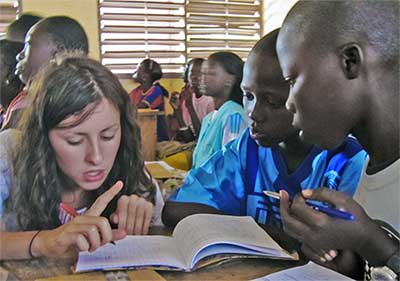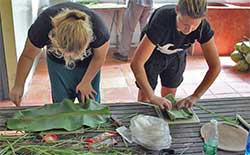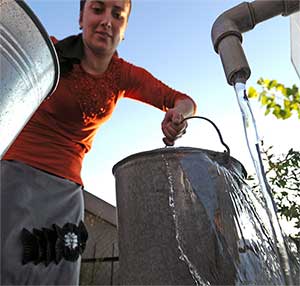Skills Gained From A Charitable Gap Year Relationship
A gap year is a life-changing experience for any individual and when carefully planned, it can be an enormous boon for professional, academic, and personal development.
These trips broaden perspectives, introduce young people to new worlds, and inspire life-long passions, so it is difficult to estimate just how significant the impacts of a gap year can be on a person’s life and, because the options for how students spend their time are nearly endless, the potential for growth is endless too.
Volunteering with a charitable organisation is surely one of the most productive and valuable ways to spend time abroad. Not only does volunteer work afford people the chance to contribute their efforts to important social causes; it also gives them an unparalleled workshop for learning valuable new skills.
The growth of skills that can be obtained from a charitable relationship on a gap year can be huge and here’s how:
Learn By Teaching

Whether studying for a career in education or not, gap year takers can learn a tremendous amount by volunteering as teachers.
The experience of crafting lesson plans, managing raucous students, and organising the inner-workings of the classroom is an exercise in developing a diversity of skills. From patience to management to language, teaching requires learning and, by immersing oneself in foreign educational systems, volunteers gain vital insights into alternate methods of education and organisation; which can open new doors for creativity and innovation later in their professional lives.
There are many charitable non-profit organisations that have opportunities for volunteers to teach abroad. From opportunities on ecotourism placements that enable you to act as a teacher or tour guide in conservation to humanitarian work that enables you to give back to children in orphanages in developing countries to even farming placements that allows you to work on a farm and help empower local communities through agriculture.
Through all these placements and teachings, the skills you inherit are valuable assets to have in life: self-motivation, diversity, teamwork and personal growth.
Essential Skills in a Global Market

In an era of digital technologies where business is increasingly conducted on an international scale, companies are eager for employees with the skills needed to bridge cultural barriers.
Gap year students learn the languages, customs, and values of the countries they live in and particularly by working with charities and non-profits; volunteers come to understand the obstacles that these communities face. So with these unique insights, they are able to help businesses cater to foreign markets and connect with foreign clients in ways that few other can.
See our pages on Intercultural Awareness and Intercultural Communication for more information.
Problem-Solving

Travel (particularly budget travel) is a constant exercise in solving unexpected problems and non-profit organisations make it their job to solve crises in developing communities. So, gap year volunteers get a crash-course education in problem solving, which helps them develop talents that will stick with them for a lifetime.
To excel in the workplace, employees and entrepreneurs must be able to work independently and with teams to overcome obstacles yet the classroom simply cannot teach the type of problem solving required in many professions—only hands-on experience can and the gap year and charity relationship enables this.
Tools of the Trade

Agriculture, sanitation, education, medicine, and construction are just a handful of the industries in which gap year volunteers can contribute their time.
While helping communities through charities around the world, volunteers learn vital skills in whichever trade capacity they work.
The experience they obtain is often far more valuable than any internship or apprenticeship back home could provide. So to learn the tools of their trade and get hands-on experience implementing them in situations where the impact is immediately felt, gap year takers need look no further than the non-profit organisations that are desperate for their help.
Further Reading from Skills You Need
The Skills You Need Guide to Personal Development
Learn how to set yourself effective personal goals and find the motivation you need to achieve them. This is the essence of personal development, a set of skills designed to help you reach your full potential, at work, in study and in your personal life.
The second edition of or bestselling eBook is ideal for anyone who wants to improve their skills and learning potential, and it is full of easy-to-follow, practical information.
Success in our personal and professional lives requires being adaptable, resourceful, and aware. There are few better ways to hone these skills than by learning to cross borders, bridge cultural barriers, and overcome ideological divides.
As communication and transportation technologies render our world more intimately connected every day, developing the resources to excel in a landscape of increasing diversity is an essential pursuit. So, while the classroom and workplace are crucial forums for education in the modern age, lessons learned while traveling help us grow in ways we never could have imagined.
About the Author
Jenny Ann Beswick works with the UK cancer charity on their Cancer Research charity giving team. The charity’s goal is to beat cancer sooner and with help in funding and research this can be done. Jenny has skills in managing multiple projects and making a difference through awareness, and encourages you to enhance your skills.


